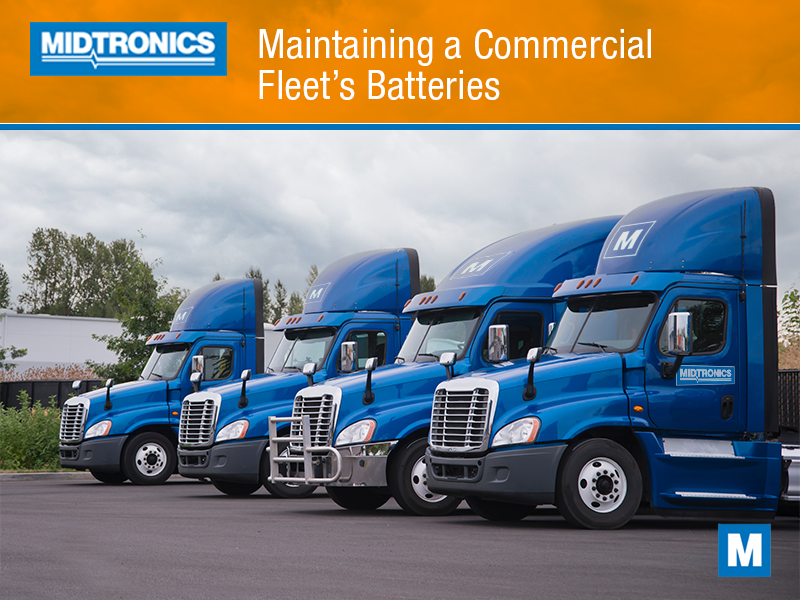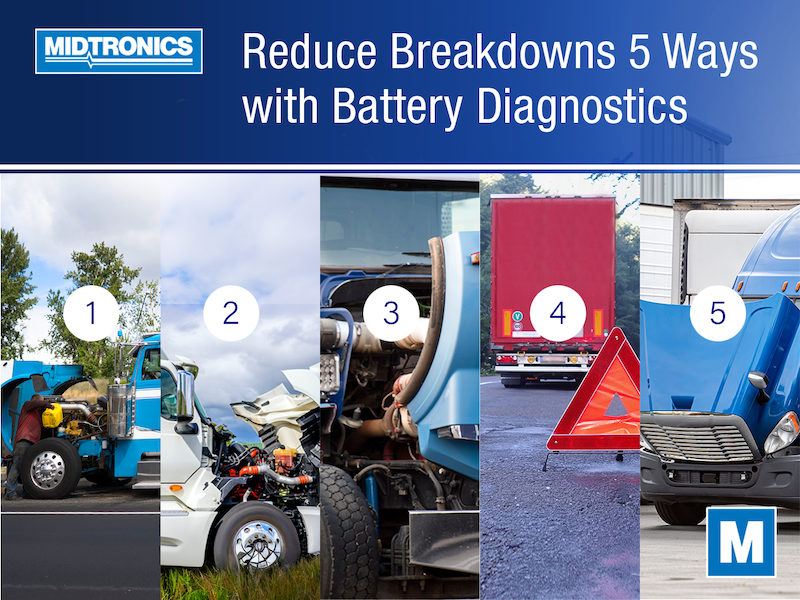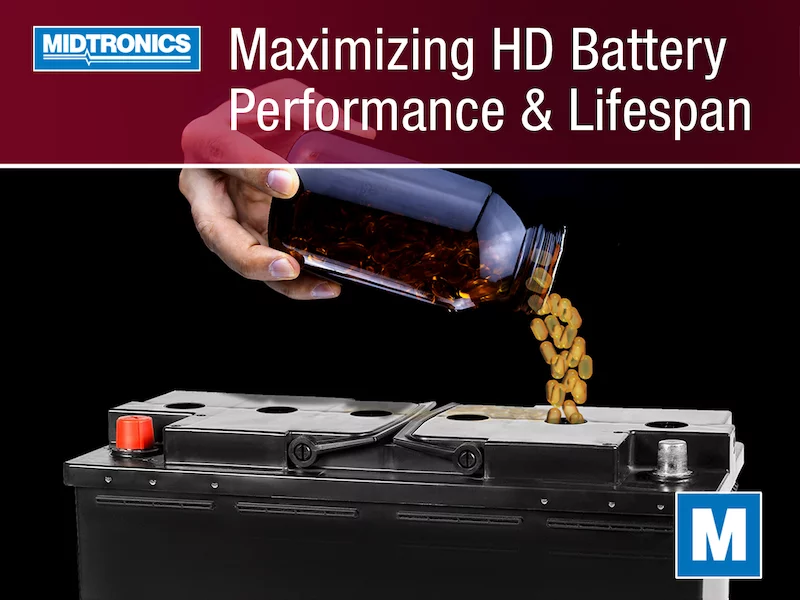Reliability is efficiency when it comes to business. Whether you’re in charge of a fleet of 10 vehicles for a small courier company or the service manager at a major franchised car dealership, the goal must always be to keep every vehicle on the road so it can be productive. An idle vehicle not only doesn’t generate income for the business owner, but it usually means there’s also some sort of repair or maintenance cost associated with it too.
Since the majority of emergency roadside assistance calls are related to a dead battery, it’s far more than just an assumption that commercial or fleet vehicles experience their fair share of breakdowns because of batteries too. Fortunately, these instances can be mitigated if the department responsible for maintaining the fleet is on top of battery testing and replacement.
Here are four ways a fleet manager or dealership service department can help businesses keep their cars on the road and out of trouble, essentially keeping the profits flowing.
Why Fleet Battery Maintenance is Different
Fleet vehicles aren’t like a normal passenger car, typically. They don’t run for a morning and afternoon commute, and maybe another evening trip for errands and events. Many are on the road for hours in a row, day after day, and that’s a different experience for the battery than the average grocery-getter and passenger-hauler. When they’re running, batteries are constantly involved in a state of charge and discharge, and if there were to be a cycle counter on the battery, it would tally up much faster.
But then there are also commercial vehicles that sit for extended periods of unuse. Another might constantly make short trips. A driver might have a few weeks of vacation, followed by heavy use during busy months, followed by weeks of limited use again. During these varying feast-or-famine cycles, the battery can experience phases of deep discharge, and it becomes tricky to monitor, especially something as granular as battery condition.
When it comes to maintenance, fleets require the same as a normal family car, but the timing and importance are different.
Maintenance Can’t Be Ignored
To keep vehicles operating as dependably as possible between battery replacements, the battery should be cared for with routine maintenance. Gone are the times – at least for most vehicles – that the electrolyte levels need to be checked and topped up, but maintenance-free SLA batteries still need routine care.
At every oil change interval, the battery should be tested to confirm its condition. While this might seem like overkill for some vehicles that accumulate mileage at an alarmingly fast rate, the battery’s strain and wear occur proportionally.
Along with battery tests, regularly cleaning battery terminals, checking that hold-downs are tight, and inspecting for case bulging should be completed at least annually.
Replace Batteries Before Failure
There’s a prevailing mindset that fleet companies have, especially those who have a management company for maintenance and repair approvals. They tend to wait until a problem exists before correcting the condition, and the assumption is that it’s more cost-effective in the long run. However, what’s often unaccounted for is the loss of revenue or productivity that occurs when an unexpected breakdown occurs, rather than performing the corrective action when there are signs of an impending problem.
With batteries, it’s almost always possible to detect degradation and performance issues before they cause symptoms when testing is part of the service routine. A replacement battery can seem like a steep purchase for a fleet vehicle when there aren’t any concerns present, but what’s the cost of a half day’s lost productivity when you wait for a failure? Surely it’s significantly higher than any savings from dealing with a weak battery proactively.
When you have a data-backed test that indicates a battery is weak, it’s a great idea to act on it rather than waste time and money later on.
Use Quality Batteries for Each Vehicle
The strategy of keeping service costs low isn’t always about choosing the cheapest options. Like in many other aspects of life as well as vehicle repairs and servicing, you often get what you pay for. For commercial vehicles that experience more strain than a typical passenger vehicle, the battery probably shouldn’t be the cheapest one you can find at your local discount parts store.
There are differences in manufacturing quality, and some designs like spiral cell and AGM are simply more durable than others. Some brands carry a much longer warranty replacement period and subsequent prorated time. And others yet will offer higher CCA and reserve capacities.
While you don’t have to purchase the most expensive option available, choosing a battery that’s properly sized for the application, can withstand any additional rigors of the operating environment, and carries a warranty that helps reduce future service costs is beneficial.
Keep Batteries Charged and Healthy
In instances where a commercial vehicle can sit for a long time without being used, that doesn’t always equate to lower maintenance costs in the long run. These can behave much like vehicles that experience deep discharge cycles, like a highway tractor using a 12-volt battery to run equipment in the sleeper like AC and an electric fridge.
Being stored with a low charge is proven to be damaging to batteries with sulfation setting in after just a short time. When a vehicle is parked for a week or longer, or when vehicles that have deep cycle batteries return to the shop for some downtime, ensure they get on a charger to replenish and recondition, where possible. You can’t always reverse the effects, but you can help prevent it from degrading further.
The Right Equipment is Key
To help keep your fleet of revenue-supporting vehicles in good shape, include battery maintenance and testing into your service schedules. The right equipment can save you money and downtime in the long run, whether you need 12-volt testing equipment like the MVT handheld tester or one intended for heavy-duty vehicles like the DSS-5000 HD. At Midtronics, our professional-grade equipment is built to support your needs and help you make data-driven decisions about how best to care for your vehicles.




